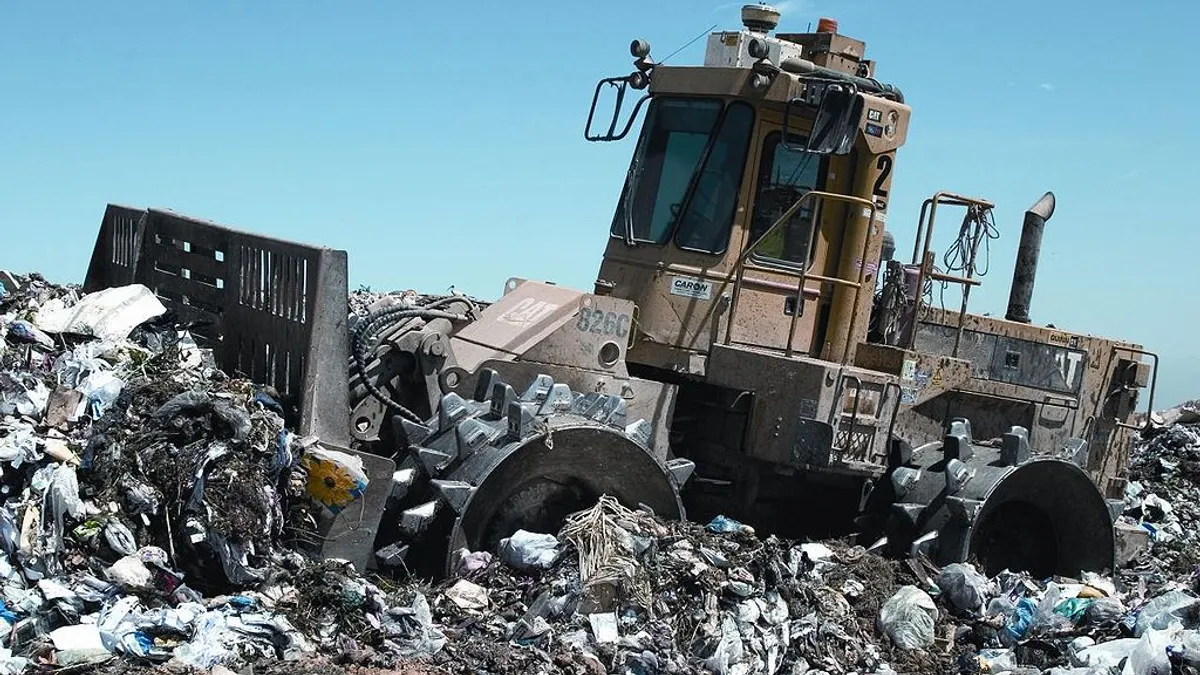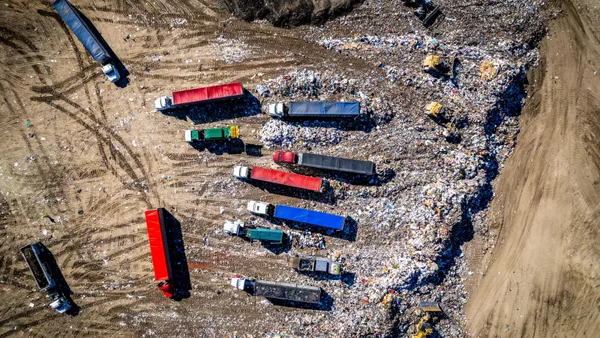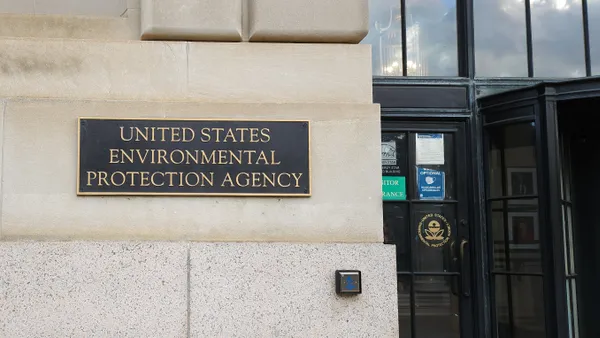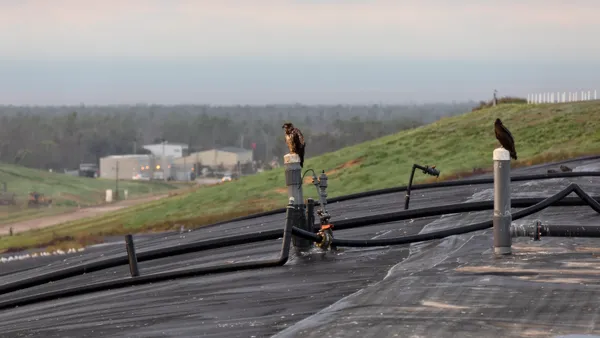Dive Brief:
- The Pennsylvania Department of Environmental Protection (DEP) has issued a second assessment letter to the Keystone Sanitary Landfill seeking more information on its environmental effects before moving forward on a permit application for expansion, as reported by The Times-Tribune.
- The state's letter reviewed comments on the site's potential benefits — job creation, tax revenue, community benefit funds — as well as potential harms. Multiple questions remain around leachate management, groundwater contamination, air quality monitoring and the tracking of mud onto local roads.
- DEP's letter, dated May 25, gave Keystone's operators 90 days to revise their permit application. The application is seeking permission to expand the site's disposal capacity by 134 million cubic yards, adding an estimated 44 years to its lifespan.
Dive Insight:
Keystone's initial application in March 2014 sought an even larger expansion that would have increased the landfill's height by 165 feet within a 435-acre space. Following initial state environmental assessments, Keystone reduced the proposed scale in May 2016 and has been part of multiple community meetings throughout the process.
Known for accepting large quantities of out-of-state waste, Keystone has become a popular target for local citizen environmental groups that oppose any expansion plans. The site briefly became a campaign issue during a Senate race last fall and was even mentioned by Senator Bernie Sanders during the confirmation process for Environmental Protection Agency Administrator Scott Pruitt. Recently, the landfill was also cited for leachate violations by the state's DEP and has been the subject of a legal challenge over zoning.
Even under the best circumstances, it's not uncommon to see community engagement around proposed landfill expansions — especially when long-distance waste is involved. This type of activism at other sites has scuttled major export contracts and caused at least one landfill to stop accepting out-of-state waste entirely. Balancing the flow of that volume with local waste management needs is often difficult to address, and a resolution of the Keystone expansion question doesn't appear imminent.













